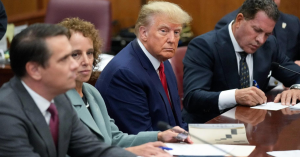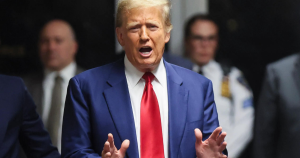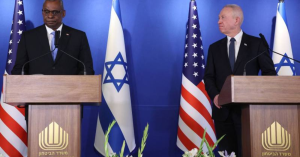A report published by New York Center for Foreign Policy Affairs (NYCFPA) focused on Terrorism, especially in the West. It discussed counterterrorism strategy against every form of extremism used by Europe. Terrorism is a true danger to the rule of law, basic human rights enjoyment and democracy. For this reason, numerous strategies are being adopted to prevent, protect, pursue and immediately respond to every terrorism attack threat so as to ensure Europe remain safe for each and every one of its residents. In this respect, the report examined three interstate establishments in Europe which are involved in counter-terrorism matters and antiterrorism responses: the European Union, the Council of Europe, and the Organization for Security and Cooperation in Europe (OSCE). Each and every one of these establishments has its own duty in deterring.
Council of Europe
Founded in 1949, the Council of Europe is the oldest European interstate organisation and its Member States number 47. This organisation majorly endeavours to uphold and promote basic human rights, the rule of law and parliamentary democracy. It is situated in Strasbourg, France (UNDOC 2018).
The Council of Europe toils to help member nations in the war against extremism by reinforcing and enhancing the domestic legislation of the country in addition to expediting international collaboration. Concerning regard for the rule of law and human rights, the Council of Europe constantly works to enhance international collaboration in bringing extremists to justice (Council of Europe 2018).
The aims of Council of Europe, according to (Commonwealth of Australia 2012) are as follows:
• to protect the basic human rights, the rule of law and democracy;
• to maintain awareness and boost the growth of the cultural character and diversity of Europe;
• to discover solutions to the issues contending with the European community; and • to reinforce European democratic stability by supporting the constitutional, legislative and political reform.
European Union
Although closely linked to the Council of Europe since every one of it 28 member nations also belong to the Council, the European Union (EU) is an entirely different institution (Gabel 2019). The Maastricht Treaty which came into force on 1st November, 1993, established the EU. The agreement was instituted to improve European economic and political integration by instituting a joint security and foreign policy, common citizenship rights and a single currency.
The European Council’s major aim of is to set up the political agenda of the organisation. Basically, the European council is the EU’s decision-making institution and not its lawmaker. On its part, the European Commission is an independent EU arm.
As extremism continues to threaten considerably all over the European states, the EU remains very vigorous in matters related to counterterrorism. There were no less than 142 abortive, stopped or successful extremism attacks in 2016 alone. No less than 1002 persons were taken into custody for terrorist crimes within the EU’s geographic area.
Based on info from Access of European Union Law (n.d.) and European Council (2018), it is formulate around four objectives
• PREVENT persons from turning into terrorists and halt future generations of extremists;
• PROTECT the public and infrastructure by decreasing proneness to assaults by securing exterior borders, enhancing transportation safety, and protecting important targets;
• PURSUE and probe terrorists; halt terrorists’ organisation, movement and communications, lessen their access to material and financial assets and bring extremists to justice while upholding the basic human rights and global justice;
• RESPOND in a harmonised fashion by preparing for the managing and decrease of the effect of an extremist occurrence while improving capacities to cope with the outcome, and taking into account the victims’ needs.
Organization for Security and Cooperation in Europe
The largest regional security body is the Organization for Security and Cooperation in Europe (OSCE) which has 57 member countries from across Europe, Asia and North America (Belarusian Diplomatic Service 2019). It is a medium for political discourse about shared ideals on several matters touching security and a stage for common action. It attempts to close the breaches and build confidence between countries by collaboration on matters such as conflict preclusion, crisis managing and post-conflict restoration matters and counter-extremism.
Several critical Ministerial Council Decisions such as the Decision No.1 on combating terrorism (MC (9) DEC/1 (2001)) as well as its extension, the Bucharest Plan of Action for Combating Terrorism, has been adopted by the OSCE.
“Terrorism has turned out to be a serious threat to the enjoyment of basic human rights, the rule of law and democracy. For this reason, there are implementations several policies to prevent, protect, pursue and immediately respond to every danger of terrorist occurrence so as to make Europe secure and safe for every single one of its residents.” said the report.
The report concluded that the strategists of the EU must start thinking beyond the bounds of convention and recognise that the application of traditional antiterrorism approaches is insufficient in confronting this issue. The point that extremism is certainly an overrated danger needs to be looked into. Building the resilience of the people to extremism is key.
The report argued that Europe needs to know the significance of capitalising on building the resilience of its people rather than reacting (and invoking) public apprehension.
Eventually, the report asserted that Europe must consider embracing a more reserved and deliberated methodology to military anti-extremism to stimulate European safety and assist in the reinforcement of a universal order in line with Europeans ideals and interests.
Author
-
The New York Center for Foreign Policy Affairs (NYCFPA) is a policy, research, and educational organization headquartered in New York State with an office in Washington D.C. NYCFPA is an independent, non-profit, non-partisan, institution devoted to conducting in-depth research and analysis on every aspect of American foreign policy and its impact around the world. The organization is funded by individual donors. The organization receives no corporate or government donations.





